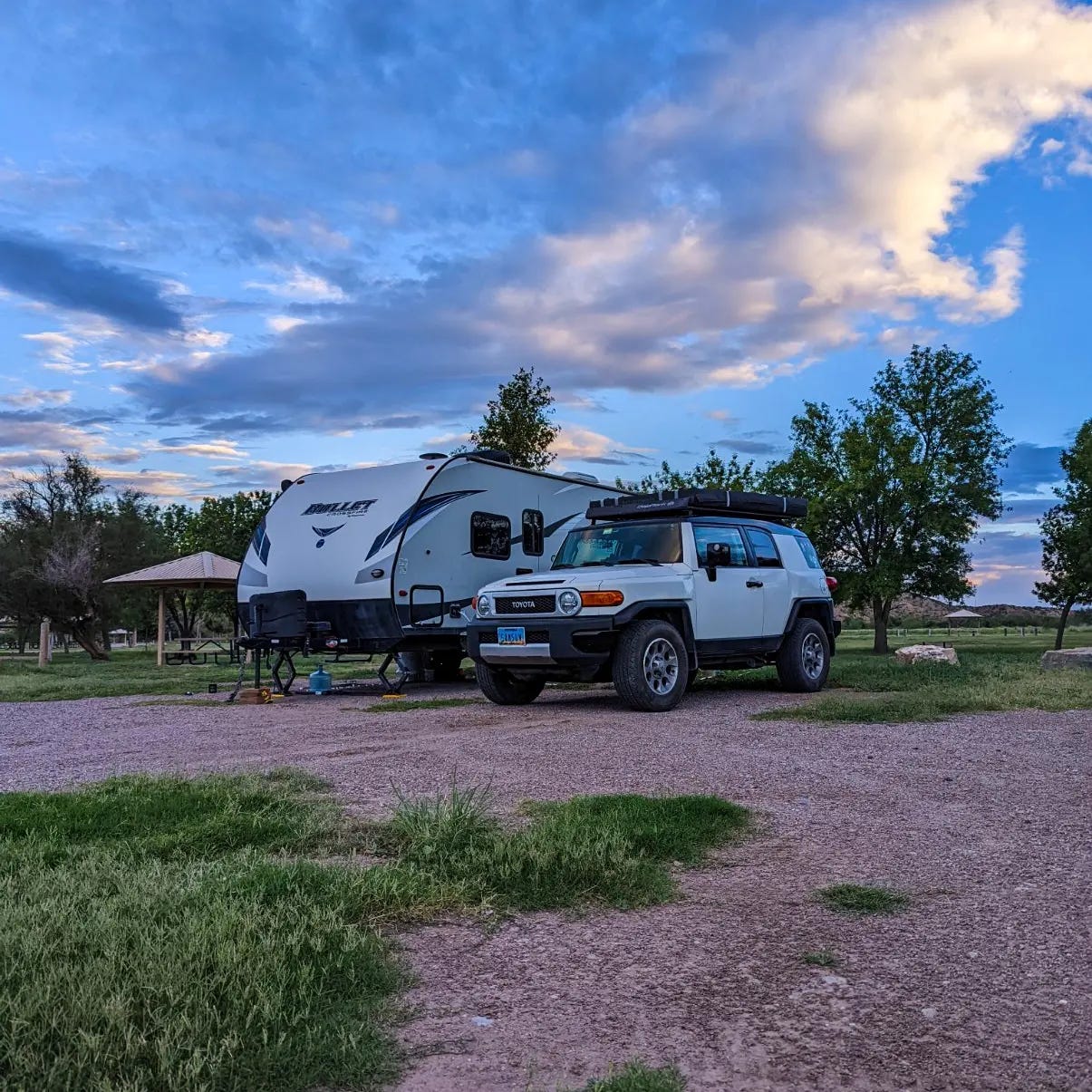FAQ 10: What Are the Pros and Cons of a Smaller Travel Trailer?
I'd buy an even smaller one!
When I first looked at travel trailers, I considered a 35-foot mansion on wheels. It sported two bedrooms and 1.5 bathrooms. It had multiple slideouts and beautiful barn doors. I was in love. However, the pandemic forced me to change my priorities. Mobility now became more important than the luxury of a separate office space or guest room.
I decided I needed a trailer around 20 feet and definitely under 26 feet. My 2018 Keystone Bullet Crossfire*** measures 21 feet and 4 inches. It weighs 3,280 lbs dry―probably less, considering the items I have removed from the RV. And, people are full-timing in trailers even smaller than mine.
But why? What are the perks of a smaller trailer?
The Pros of Having a Smaller Trailer
I love my travel trailer, but if I ever buy another one, it will be even smaller. That surprises a lot of people―including fellow full-timers. Here's why I think smaller is better:
Smaller travel trailers typically cost less than the larger ones built by the same company.
You don't need expensive, heavy-duty trucks to tow small trailers. I tow with an FJ Cruiser, a V6 that maxes out at 5,000 towing lbs.
Smaller travel trailers inevitably weigh less than larger rivals, which means fewer gas station stops and much better MPG.
If you need to store your trailer temporarily, you’ll likely pay by size. It might even fit in your garage or driveway for free!
Smaller travel trailers are far more maneuverable on the road and off. You can fit into two parking spaces in the city and bring them onto narrow dirt roads in the countryside.
A smaller travel trailer opens up a world of opportunities for campsites because some are very small. I most commonly see limits at 26 feet or less. Meanwhile, some park roads have limits too, usually 40 feet and under for the total length of vehicle + trailers.
Small travel trailers are easier to keep clean. You can tidy up in 15 minutes and do a deep cleaning in about half an hour.
The Cons of Having a Smaller Trailer
Despite considering an even smaller RV, there are some downsides. These are the ones that concern me most:
The smaller the trailer, the less space you have to store things. So, you'll either have to get rid of most of your belongings or get a storage unit.
It's a lot harder to host guests in your travel trailer. That said, my mom spent three weeks with me in my tiny home on wheels, and we had plenty of room.
Some small travel trailers might not be self-contained. This can severely limit your camping options. For example, Boondockers Welcome and several RV parks require self-contained RV units.
The Bottom Line
When I purchased my RV, I asked myself:
What's the smallest space I can live in that still provides me with everything I need?
I recommend asking yourself the same before splurging on a mansion on wheels.
PAID SUBSCRIBERS
If you're one of the people helping to fund my adventures ― and misadventures! ― I cannot thank you enough. Several new people have signed up recently, and I am incredibly grateful for your support. Next week, you will receive your exclusive follow-up to this article. It covers the following areas:
How to determine how small is big enough
What features to look for that make a tiny trailer feel big enough
How to downsize as much as possible for tiny living
PS:- My 33rd birthday is on October 9th! Paid subscriptions are a gift to us both! Also, happily accepting well wishes and suggestions for future posts. “See” you soon!
***I am a Keystone Brand Ambassador for 2022. However, I have owned my travel trailer for years and mentioned it because it is the one I have.


